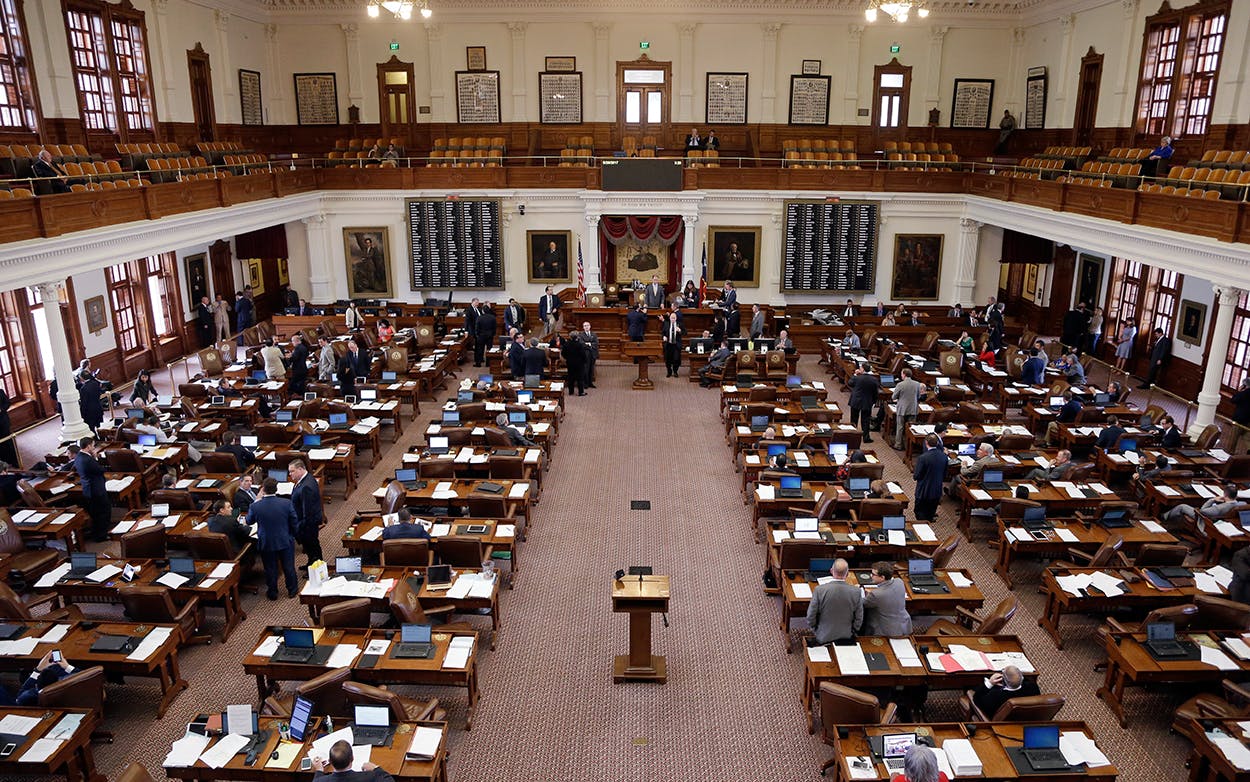At the end of last week, the Austin City Council voted to pass a new ordinance requiring local businesses to give their employees paid sick leave. It was the end result of a long and intense fight, which pitted labor leaders and a diverse coalition from Austin’s liberal community against more than one hundred local business owners and a national group backed by the powerful Koch Brothers. Supporters packed the council chambers to speak before the vote, and many gave impassioned pleas to vote in favor of paid sick leave. According to the Texas Observer, some speakers “broke down in tears as they recounted times when they or their loved ones had to choose between accessing health care and paying rent.” When the 9-2 vote came in, the crowd broke out in raucous cheers, applauding Austin for becoming the first municipality in Texas and in the Southern U.S. to enact such an ordinance.
But the cheers were a little premature. Austin’s City Council may not have the final say in the the battle. Within hours of the ordinance’s passage, state representative Paul Workman, a Republican whose district covers much of western Travis County, said he’d introduce legislation on the first day of next year’s session in an effort to have the ordinance repealed. “I support employers providing paid sick leave for their employees, but it is not the role of government to mandate that employers do this,” Workman said at a press conference later Friday morning. “The council made good on their promise to add yet more regulations on private business. They have clearly declared war on the private businesses which make our prosperity happen. I will file legislation on the first day possible to reverse this and the other liberal Austin policies that they’ve enacted.”
Workman said he felt it was an overreach for the council to enact such an ordinance (when reporters at the news conference questioned him about whether it was also an overreach for the state legislature to intervene in a decision made by elected local officials, Workman said no). Austin’s paid leave ordinance is just the latest local target of conservative state lawmakers, who have repeatedly tried to overturn municipal policies—ordinances that are usually liberal-leaning and typically implement regulations on businesses or industry. It’s a story that’s played out again and again, and not just in Austin.
In Denton, for example, 59 percent of voters approved a ban on fracking in 2014, only to see their efforts wiped away months later, when Governor Greg Abbott signed into law a sweeping measure that preempted local regulations on oil-drilling related activities. Denton was forced to quickly repeal its ban, and fracking within the city limits resumed immediately. Abbott hasn’t commented on Austin’s paid leave ordinance, but it’s no secret how he feels about local municipalities passing certain liberal-leaning regulations.
Local control has been a major issue during Abbott’s tenure as governor. Last year, he signed a law to override local regulations on ride-hailing companies like Uber and Lyft, forcing Austin to repeal a rule requiring the companies to do stricter background checks on drivers—a rule that was challenged fiercely by Uber and Lyft but was ultimately upheld by voters. Abbott’s law overrode Austin and several Texas cities with similar regulations, and Uber and Lyft soon returned to those cities. Abbott also said last year that he hopes the legislature would pass a “broad-based” state law, one that would effectively end the local control war in Texas by generally preempting local regulations (it seems no issue is too small for Abbott and the lege—last year they even enacted a bill restricting local tree removal ordinances).
It’s unclear how far the fight between the state and Austin over paid leave may go, but we’ve already seen these battles extend into the courtroom. Some Texas cities, from Austin to Fort Stockton to Brownsville, have passed ordinances outlawing plastic bags in grocery stores and markets—a move opposed by some local business owners but supported by environmentalists—and that issue has been burning for nearly a decade, with several conservative lawmakers filing bills with the intent to keep cities from enforcing the bans. Now, it’s up to the Texas Supreme Court, which is expected to rule on a case challenging Laredo’s bag ban sometime this summer. The state’s controversial law banning local municipalities from implementing immigrant sanctuary policies is still being debated in federal court, too.
For now, it seems Austin’s paid leave is safe. Workman can’t do much until the start of the legislative session in 2019. But he claims he already has enough support from members of the House and Senate to pass legislation that overrides the ordinance. “We will have no problem whatsoever getting this through,” Workman said at the press conference. At least one member of the senate, Donna Campbell, a Republican from New Braunfels, has publicly said that she’s committed to overturning the rule.
It won’t come easy for Workman and his allies. Austin council member Greg Casar, who authored the ordinance, told the Texas Tribune that he was disappointed to see lawmakers already plotting against the city, but he is hardly ready to give up. “We’ll just fight them tooth and nail at the Legislature,” he said. The lege won’t return for its regular session for another eleven months, but it seems like the next big battle over local control is already set.
- More About:
- Politics & Policy






